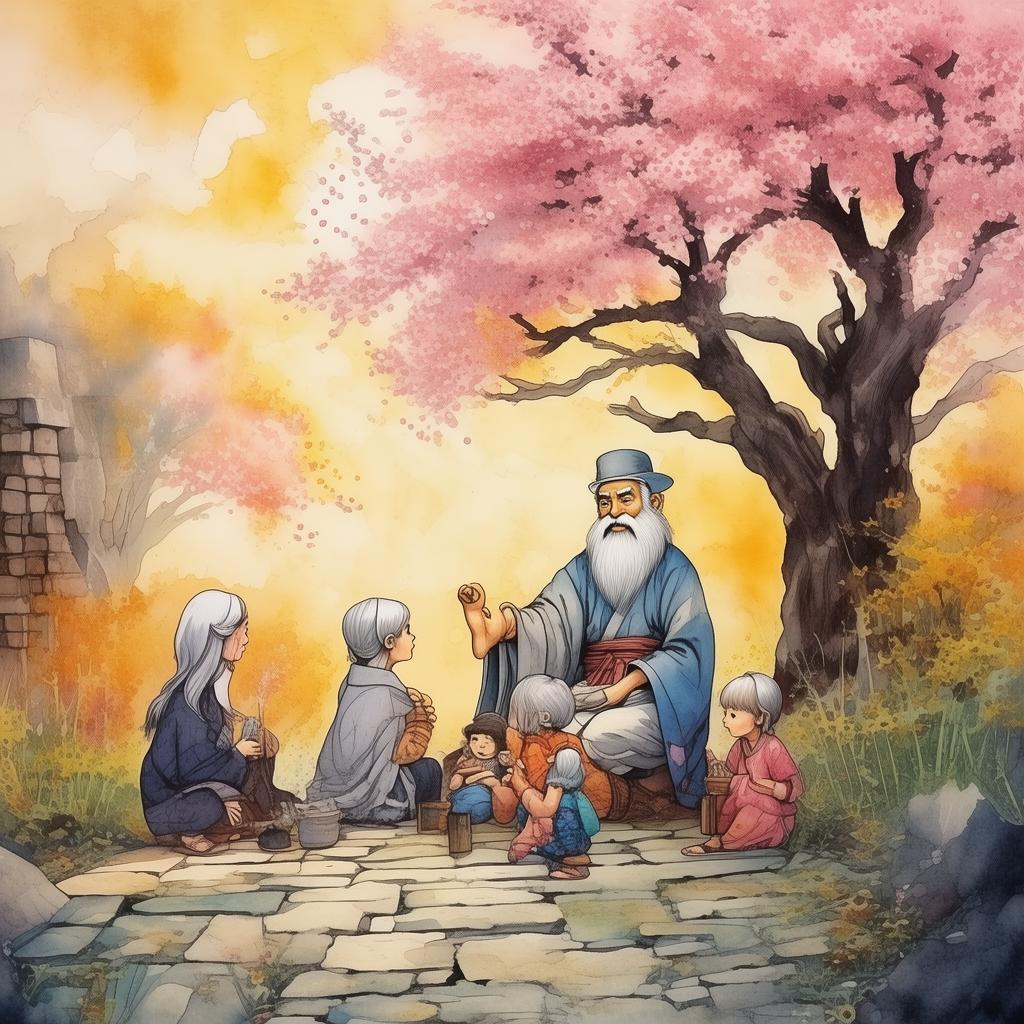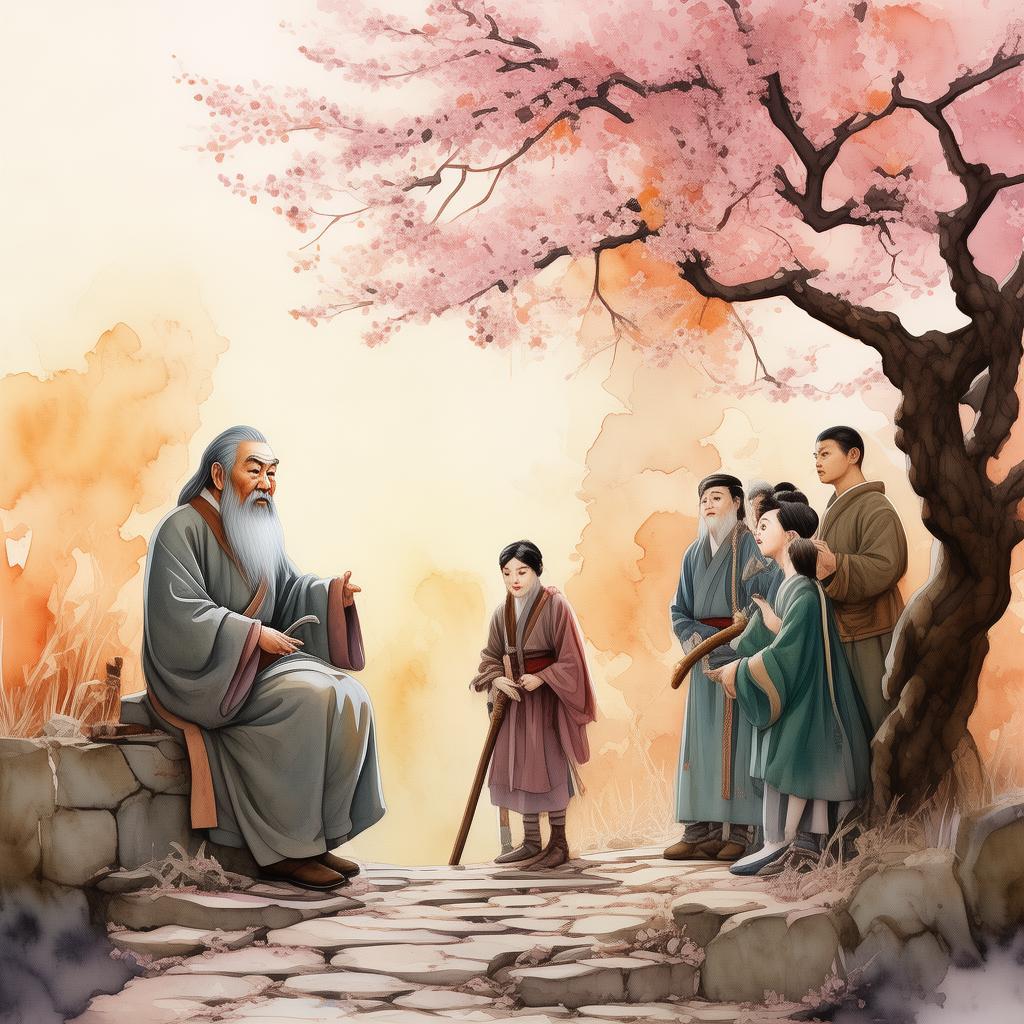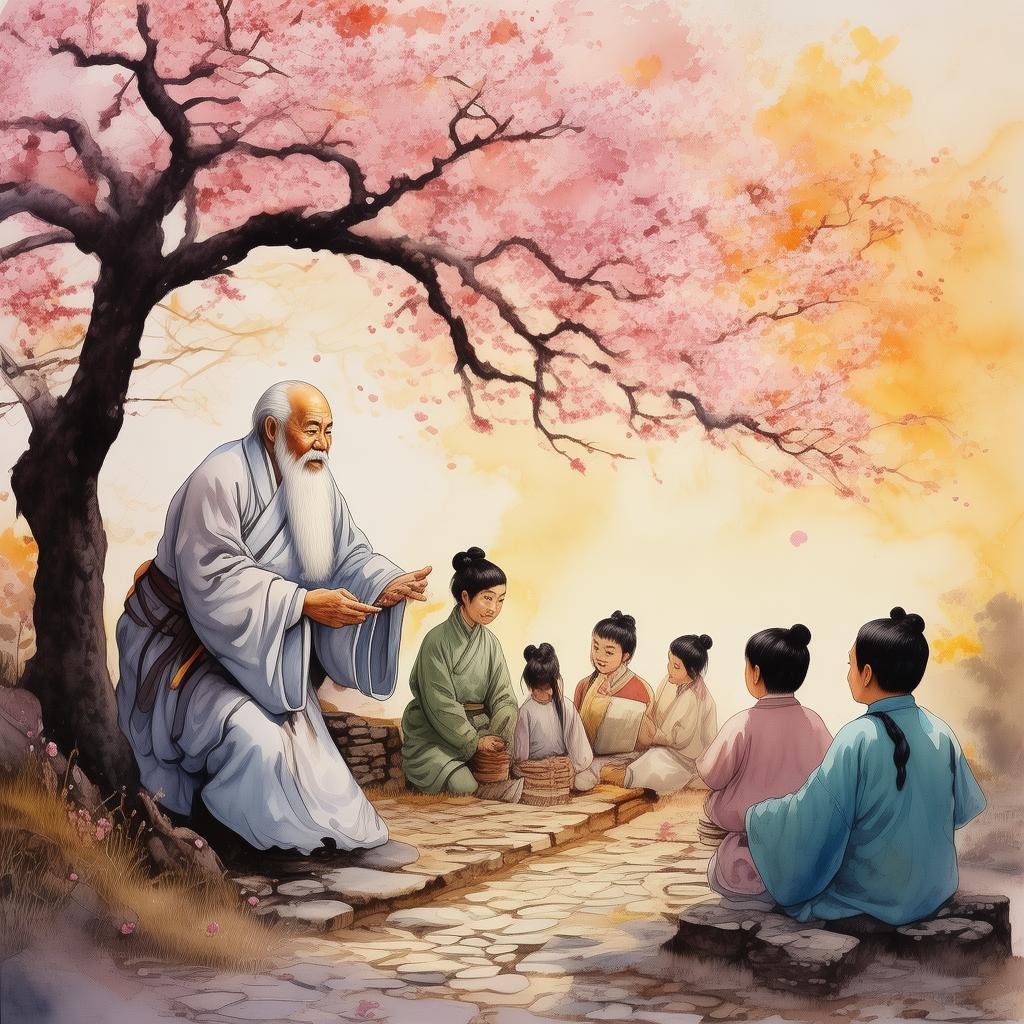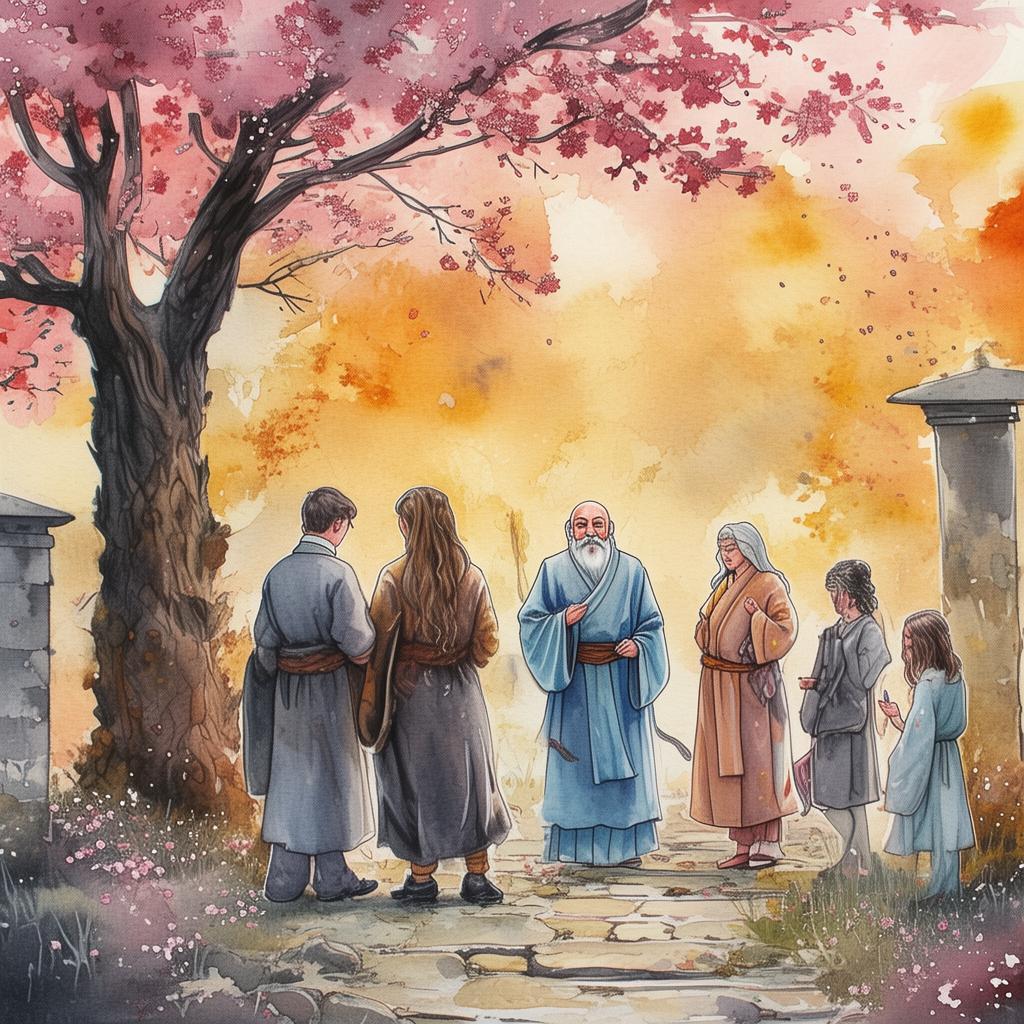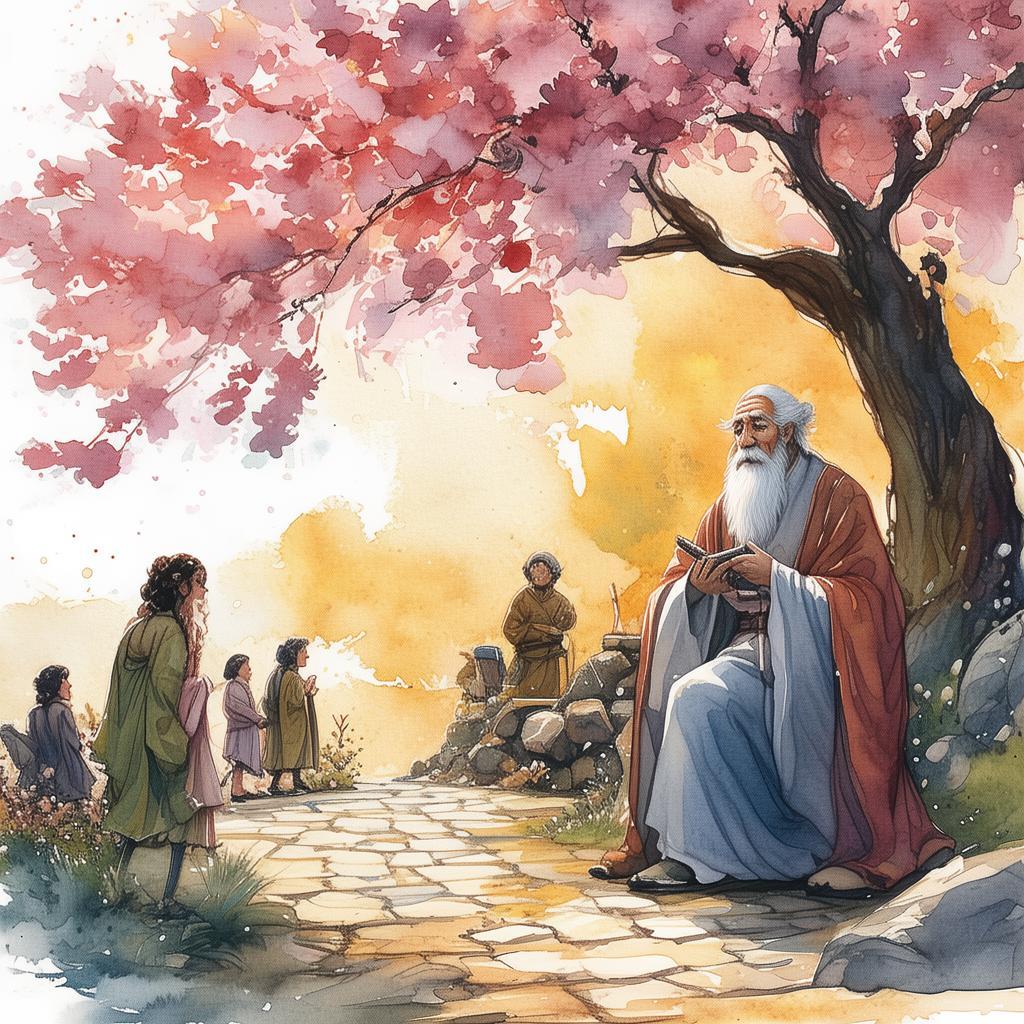Thunderous Insight: The Composer of the Rapid Melody
In the heart of ancient China, there was a young composer named Jing who was known for his intricate and soulful melodies. He spent his days in a serene bamboo grove, where the rustling leaves and the occasional chirping of birds provided a natural symphony for his thoughts. Jing was driven by a desire to create music that could capture the essence of the world around him.
One evening, as the sun dipped below the horizon, casting a golden hue over the landscape, Jing felt a sudden jolt of inspiration. He looked up to see a bolt of lightning slicing through the sky, its white-hot streaks dancing like a celestial serpentine. The thunderous crack echoed through the grove, shaking the very ground upon which he stood. In that moment, Jing realized that lightning was not just a natural phenomenon but a powerful muse, a source of energy and emotion that could be harnessed to create music.
With newfound determination, Jing began to study the patterns and rhythms of lightning. He observed how the flash of light was followed by the rumble of thunder, each with its own tempo and character. He noticed the way lightning seemed to play across the sky, weaving a complex and beautiful pattern. It was in this moment that the seed of an idea was planted in his mind, an idea that would change his life forever.
The next morning, Jing set to work on his composition. He called it "The Lightning's Muse," a title that captured the essence of his inspiration. He poured his heart and soul into the piece, weaving the rhythm of thunder with the gentle touch of a piano. The melody was both fast-paced and profound, a testament to the power of nature to inspire creativity.
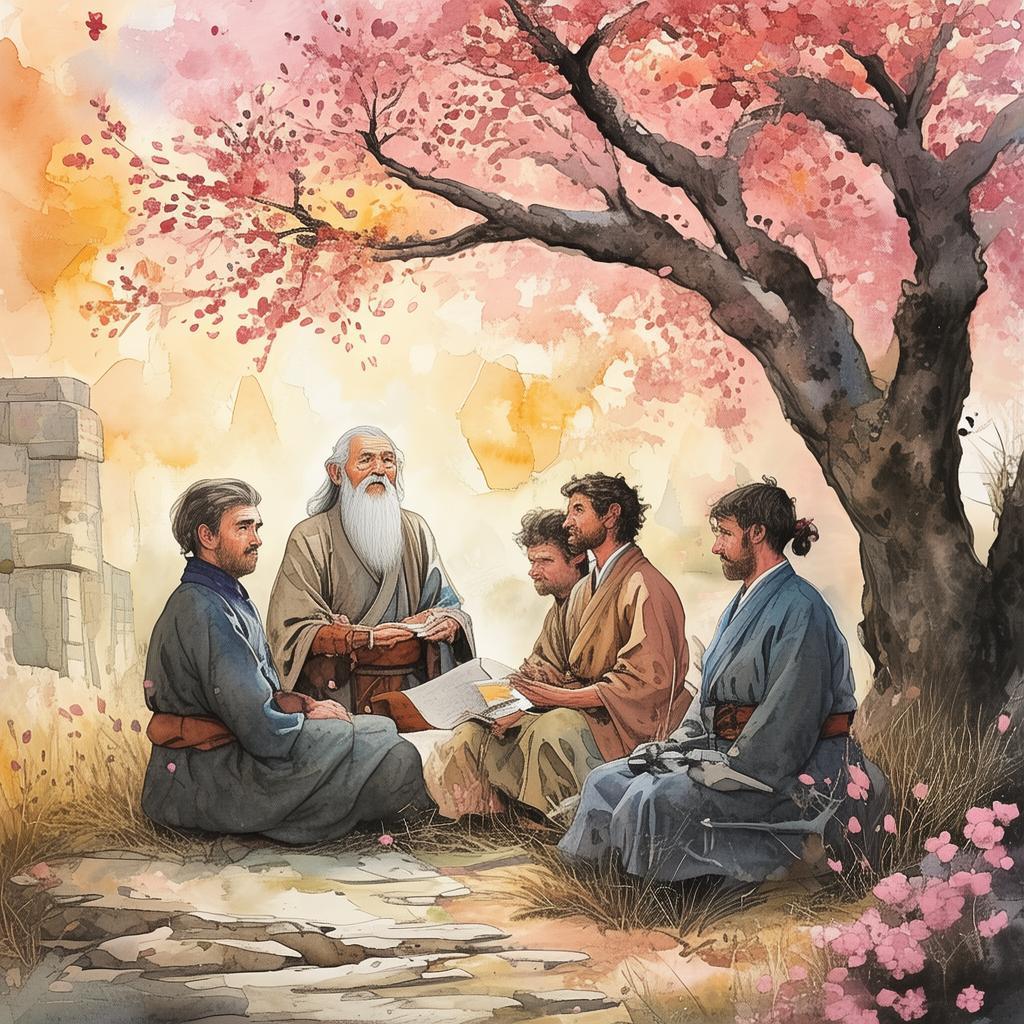
As he played the final note, Jing felt a deep sense of fulfillment. He knew that this piece was not just music; it was a representation of his journey, of how he had learned to listen to the world around him and translate its essence into art. He called this newfound ability the "Rapid Melody," a phrase that encapsulated the speed and intensity of inspiration.
Word of Jing's composition spread like wildfire through the countryside. People came from far and wide to hear the music that had been born from the lightning's muse. They were captivated by the way the piece seemed to capture the very essence of the natural world, the way it made them feel both small and immense, vulnerable and powerful.
One critic, a seasoned musician named Li, approached Jing after the performance. "Your music is like a lightning bolt, young composer," Li said with a nod of approval. "It is both fierce and delicate, a testament to the beauty of life's unpredictability."
Jing smiled, feeling a surge of pride. "Thank you, Master Li. It is the lightning's muse that has guided me."
Days turned into weeks, and the composition continued to resonate with those who heard it. Jing found himself in a constant state of creativity, always seeking out new inspiration from the world around him. He began to see the potential of nature in every aspect of his life, not just in his music.
One evening, as he was walking through the bamboo grove, he noticed something unusual. The leaves were moving in a pattern that seemed to mimic the dance of lightning. He watched, enchanted, as the leaves swayed and rustled in a way that told a story of their own.
In that moment, Jing had another revelation. The lightning's muse was not just a source of inspiration for his music; it was a guide to understanding the world itself. It taught him to look beyond the surface, to see the beauty and complexity in everything around him.
He returned to his studio, his heart filled with a new sense of purpose. He began to compose a new piece, one that would not just be music but a testament to the profound connection between humanity and nature. The title, he decided, would be "Thunderous Insight," a nod to the moment he had first realized the power of the lightning's muse.
As he worked on the composition, Jing felt the same jolt of inspiration as before. He played the final note, and as the sound echoed through the room, he knew that this piece would be his magnum opus, a true reflection of his journey and the profound understanding he had gained from nature.
The music of "Thunderous Insight" spread far and wide, resonating with listeners who felt the same connection to the natural world. Jing's compositions became more than just music; they became a bridge between the human soul and the vast, unspoken language of nature.
In the end, Jing's life was a testament to the power of the lightning's muse, a reminder that creativity could be found in the most unexpected places. And so, he lived out his days as a composer, always listening, always learning, and always inspired by the rapid melody of the world around him.
✨ Original Statement ✨
All articles published on this website (including but not limited to text, images, videos, and other content) are original or authorized for reposting and are protected by relevant laws. Without the explicit written permission of this website, no individual or organization may copy, modify, repost, or use the content for commercial purposes.
If you need to quote or cooperate, please contact this site for authorization. We reserve the right to pursue legal responsibility for any unauthorized use.
Hereby declared.
